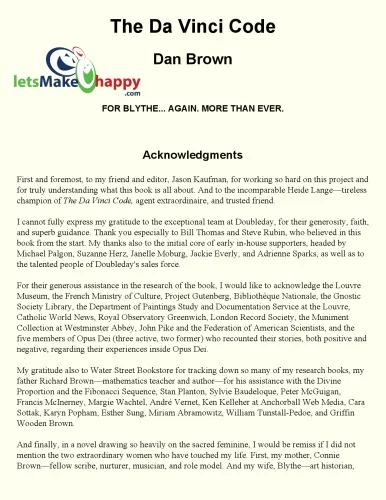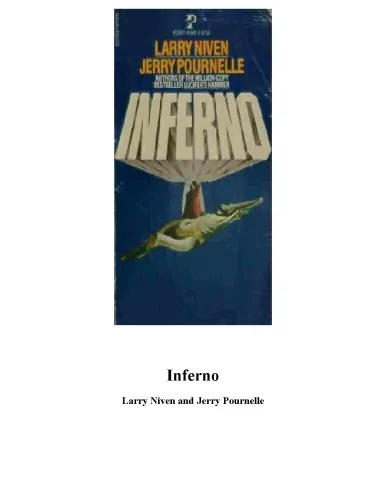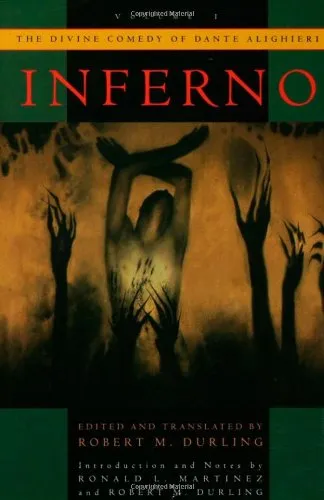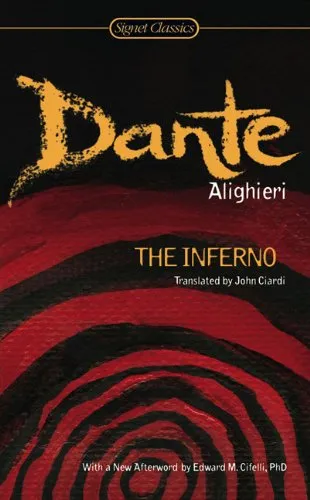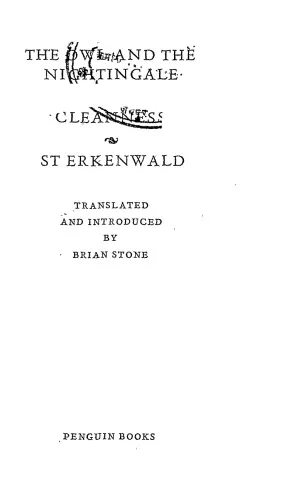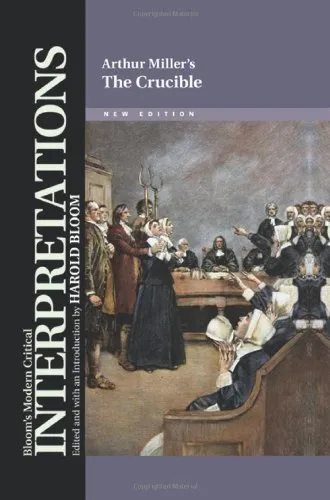Divine Comedy: Inferno
4.5
Reviews from our users

You Can Ask your questions from this book's AI after Login
Each download or ask from book AI costs 2 points. To earn more free points, please visit the Points Guide Page and complete some valuable actions.Related Refrences:
Introduction to 'Divine Comedy: Inferno'
Dante Alighieri's 'Inferno', the first cantica of his epic poem 'The Divine Comedy', is a groundbreaking and influential work that provides a vivid depiction of the medieval imagination and theological vision. As Dante embarks on his journey through Hell, guided by the Roman poet Virgil, readers are introduced to a complex moral architecture that explores themes of sin, justice, and redemption.
Detailed Summary of the Book
'Inferno' begins on Holy Thursday in the year 1300, when the protagonist and author, Dante, finds himself lost in a dark wood. A place of confusion and fear, this setting symbolizes the spiritual despair that has derailed Dante's life. As he struggles to find his way out, he meets Virgil, the classical poet renowned for 'The Aeneid', who has been sent to guide him. Together, they embark on a journey to see the souls suffering in Hell before moving onwards to salvation.
Hell, in Dante's vision, is depicted as an elaborate subterranean funnel shaped into nine descending circles. Each circle corresponds to specific sins and their corresponding punishments, embodying the principle of contrapasso, where the punishment reflects the sin itself. As Dante and Virgil traverse these harrowing realms, they encounter historical and mythological figures, each suffering for their transgressions. Through his vivid imagery and allegorical narrative, Dante explores a myriad of human faults, from the lustful passions punished in the second circle to the treacherous betrayal in the lowest circle.
Key Takeaways
- The Importance of Redemption: 'Inferno' emphasizes the possibility of redemption through divine grace and personal accountability. As Dante witnesses the horrors of Hell, he underscores the necessity of repentance and moral responsibility.
- The Nature of Sin and Justice: Dante’s depiction of sin is complex, serving as both a personal failing and a societal commentary. Each sin's punishment in Hell reflects divine justice, reinforcing the medieval understanding of moral order.
- The Role of Guidance in Personal Growth: The character of Virgil serves as a mentor and guide, highlighting the importance of wisdom and knowledge in overcoming life's trials.
Famous Quotes from the Book
"Midway upon the journey of our life / I found myself within a forest dark, / For the straightforward pathway had been lost."
"Abandon all hope, ye who enter here."
These quotes encapsulate the thematic essence of the 'Inferno', reflecting Dante's exploration of despair and the search for redemption.
Why This Book Matters
'Divine Comedy: Inferno' has had a profound impact on both literature and theology. It serves as a timeless reflection on the human condition, challenging readers to contemplate the nature of sin and virtue. Dante's work is not only a testament to medieval thought but also a universal saga that continues to resonate, offering insights into moral, philosophical, and political issues. By blending classical knowledge with Christian theology, Dante managed to create a text that is at once deeply personal and expansively symbolic, inviting readers to embark on their own journey of reflection and discovery.
This epic work remains relevant through its masterful blend of poetic invention, rich allegorical layers, and enduring human themes. Its influence extends beyond literature, contributing to the broader cultural understanding of morality, justice, and redemption.
Free Direct Download
You Can Download this book after Login
Accessing books through legal platforms and public libraries not only supports the rights of authors and publishers but also contributes to the sustainability of reading culture. Before downloading, please take a moment to consider these options.
Find this book on other platforms:
WorldCat helps you find books in libraries worldwide.
See ratings, reviews, and discussions on Goodreads.
Find and buy rare or used books on AbeBooks.
1373
بازدید4.5
امتیاز0
نظر98%
رضایتReviews:
4.5
Based on 0 users review
Questions & Answers
Ask questions about this book or help others by answering
No questions yet. Be the first to ask!

